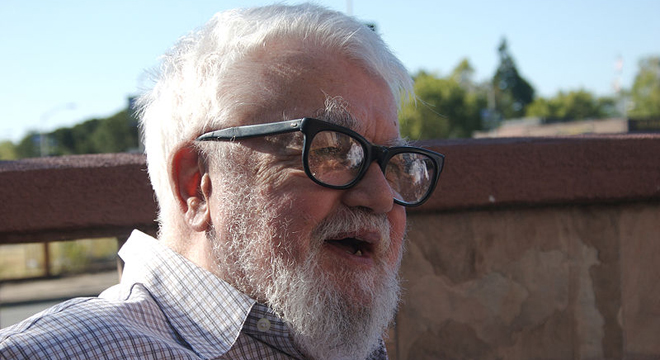Tech titan John McCarthy passed away on Sunday at the age of 84. The American computer scientist created the Lisp computer programming language in 1958 and coined the term “artificial intelligence” in a 1955 paper proposing a research study on the subject at Dartmouth College.
As McCarthy wrote of AI at the time:
“The study is to proceed on the basis of the conjecture that every aspect of learning or any other feature of intelligence can in principle be so precisely described that a machine can be made to simulate it. An attempt will be made to find how to make machines use language, form abstractions and concepts, solve kinds of problems now reserved for humans, and improve themselves. We think that a significant advance can be made in one or more of these problems if a carefully selected group of scientists work on it together for a summer.”
McCarthy was born in Boston, MA in 1927 but later moved to Los Angeles with his mother and father where he taught himself advanced math, according to Silicon Republic. He received a PhD in mathematics from Princeton at age 24.
In 1956, he began work on an algebraic programming language to generate AI simulations on the IBM 704 computer which eventually became the parenthesis-friendly List Programming language, or LISP, when specified in 1958, according to The Register. That makes Lisp the second oldest programming language in the world after IBM’s Fortran, specified in 1957.
McCarthy continued to improve Lisp throughout his life, first as a professor and then, since 2001, as a professor emeritus of computer science at Stanford. In 1959, he developed garbage collection, the process of reclaiming memory occupied by objects no longer in use.
Lisp saw its popularity peak in the 1960s but saw a brief resurgence beginning in the 1990s and in then again in the mid-2000’s. Recently, its been employed in the Yahoo! Store, AT&T’s virtual switched circuit capabilities and Xanalys LinkEXPLORER, according to Lispworks.
McCarthy, who sought to develop AI that would pass the “Turing Test“, replicating human speech and actions, achieved a lifelong ambition of sorts, winning the 1971 Turing Award, the Association for Computer Machinery’s most prestigious technical award, for his lecture “The Present State of Research on Artificial Intelligence.”
McCarthy wasn’t shy about his political leanings, either. The ACM later noted that “John McCarthy often comments on world affairs on Internet forums with a right-wing perspective.
The Turing Award was but one of a long list of awards he earned for his work.
Although he singlehandedly launched the AI revolution, McCarthy wasn’t afraid to criticize its direction.
According to Noel Sharkey, Professor of Artificial Intelligence at the University of Sheffield, McCarthy regretted the use of the term and wished he had actually used “computational intelligence” instead, the BBC reported.
“He believed in artificial intelligence in terms of building an artifact that could actually replicate human level intelligence, and because of this, we was very unhappy with a lot AI today, which provides some very useful applications but focuses on machine learning,” Stanford AI researcher Daphne Koller told WIRED of McCarthy’s regrets.
McCarthy was active online through the end of his life, maintaining his own personal website, where he even published a fiction story “The Robot and the Baby.” Of course, it too is about artificial intelligence.









